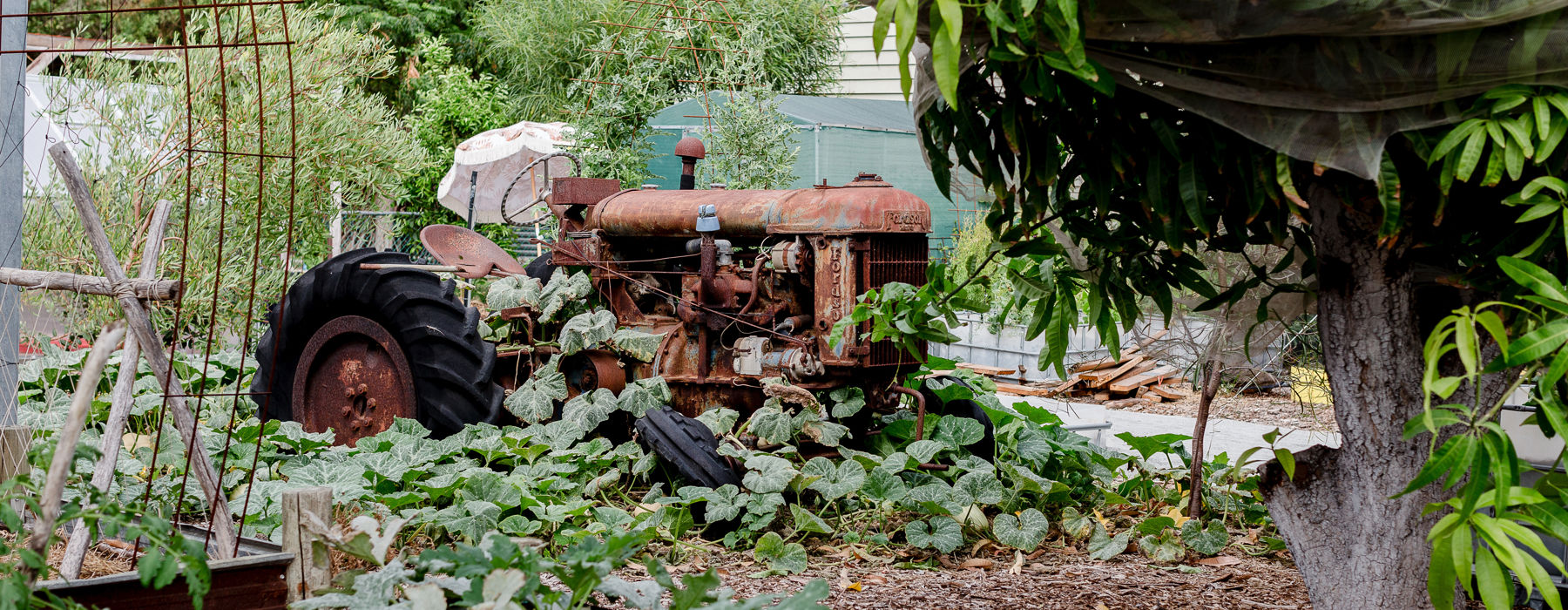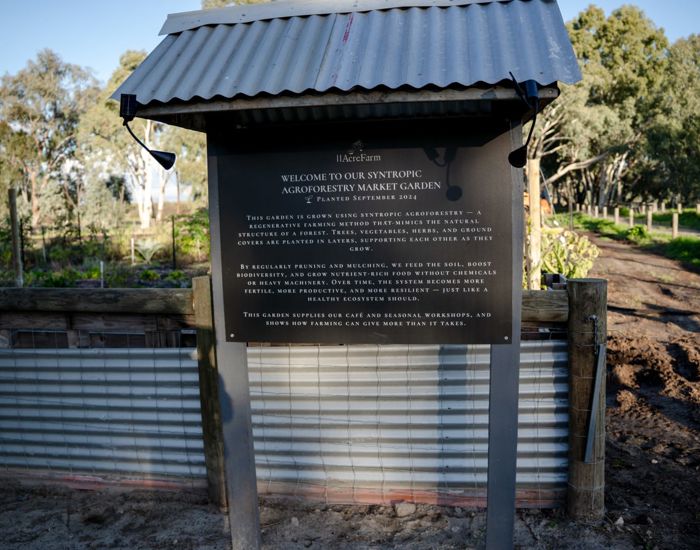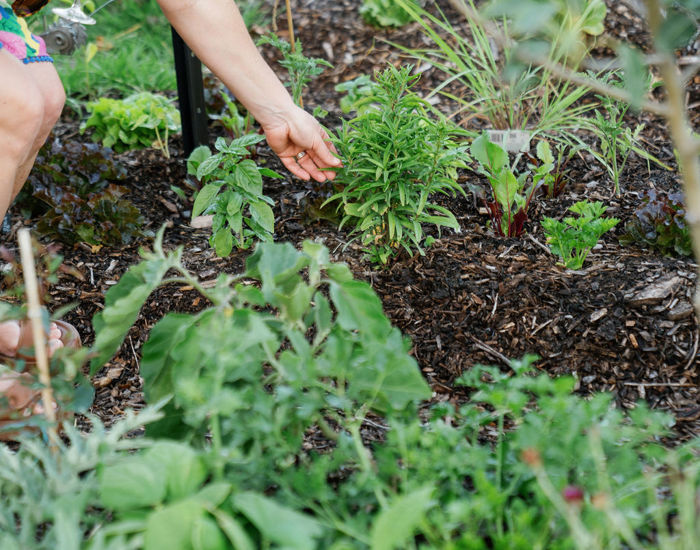Regenerative Farming


Our Market Garden
Tucked behind the café, where the birdsong hums and the soil is rich with life, you’ll find the beating heart of our farm — the market garden.
At 11 Acre Farm, we grow more than just food — we grow with purpose. Using Permaculture and Syntropic Farming principles, our garden is a living example of what it means to work with nature, not against it. These regenerative farming methods prioritise biodiversity, soil health, and ecological harmony — no harsh chemicals, no synthetic pesticides, no shortcuts. Just good, honest farming.
We are proudly organic and spray-free, and every leafy green, heirloom tomato, or fragrant herb that makes its way to your plate has been grown with care, just 100 metres from where you’re sitting. Unlike many restaurants, we don’t rely on long supply chains — we rely on sunshine, rain, and a passionate team of gardeners and volunteers who help bring our paddocks to life.
Our village of growers — from experienced farmhands to weekend volunteers — tend the land with love and respect. Together, they cultivate a seasonal bounty that shifts with the weather and the wisdom of the earth.
So when you dine with us, you’re not just tasting what's in season — you’re tasting the story of the land itself.

Permaculture and Syntropic Farming
Permaculture and Syntropic Farming are regenerative agricultural practices that emphasize sustainability, biodiversity, and ecological harmony.
Permaculture is a holistic design philosophy that seeks to create self-sustaining ecosystems by mimicking natural patterns and processes. It integrates various aspects of farming, architecture, and community planning to create resilient environments that provide food, shelter, and energy while minimizing waste and environmental impact.
Syntropic farming, on the other hand, focuses on the regeneration of soil and ecosystems through the principles of natural succession and biodiversity. Developed by Ernst Götsch, syntropic farming encourages the harmonious coexistence of diverse plant species, fostering a symbiotic relationship that enhances soil fertility, reduces pests, and increases crop yields.
Both approaches advocate for working with nature rather than against it, promoting practices that restore and enhance the natural environment while producing abundant, healthy food.